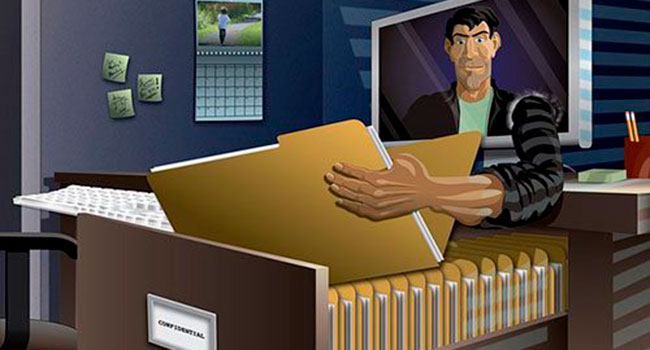 In the span of 40 years, Canadian society has gone from paper files in cabinets, to electronic storage of everything from medical records to what you had in your coffee at Starbucks this morning.
In the span of 40 years, Canadian society has gone from paper files in cabinets, to electronic storage of everything from medical records to what you had in your coffee at Starbucks this morning.
Our lives have become itemized and catalogued into easily-accessed databases filled with our intimate details. We have, in fact, willingly surrendered our privacy.
In many situations, we happily reap the benefits of this access to data, while hoping that the information is secured against prying eyes. We go to doctors and marvel that they can bring up test results and recommendations from specialists on their computer. But this information is stored on computers, and computers are inherently insecure.
In 1992, Robert Redford starred in Sneakers, which was about a group of shady characters who tested security systems for a living. In the movie, they were blackmailed into stealing a piece of hardware that could decrypt all encryption and security systems. The catch phrase at the end of the movie was “No More Secrets.”
What was fiction in 1992 is reality in 2017.
But that our personal information has become open access is something we mostly pretended doesn’t exist.
And the situation is getting worse as we digitize and catalogue more and more confidential information. The threats are everywhere, from credit cards being stolen, to ransomware being installed on corporate computers, to blackmailing companies to pay large sums of money to get their data back. With all the private information that ’s being shared and used, we’re all seemingly under siege.
Now using wireless computer networks like your home Wi-Fi or the Wi-Fi at Starbucks raises a heightened threat. Most people use Wi-Fi networks without even thinking about security. It’s used by retail companies to connect their computers; instead of running cable, they save money by using a wireless network. It’s used in offices that handle sensitive data.
But we now know that these network’s encryptions have security flaws. And that allow others to access the network to monitor the traffic and steal valuable information. Criminals can grab any data that’s transmitted over Wi-Fi. That could be your credit card number, your health records or your work records.
This is a serious problem. The wireless networks that we all use are far more open than we realize.
Soon, new security protocols will be designed that are immune to the current hack. Brilliant minds are working on the problem now. They likely will have a solution soon.
But, as confident as I am that a solution will be found, I’m equally confident that a breach in that system will be discovered soon after.
So what do we do?
Electronic security is a cat-and-mouse game of releasing new security systems just before infiltrators have hacked the last ones. This cycle will likely not stop.
We mandate that organizations that hold sensitive data only use wired networks.
Of course, this wouldn’t protect their data from criminals – the only computer that can’t be hacked is one that’s been melted into a solid block.
But it would at least make it more difficult to hack into the information.
Eamonn Brosnan is a research associate with the think-tank Frontier Centre for Public Policy. He’s also an information technology consultant and has taught post-secondary computer and technology courses.
Eamonn is a Troy Media Thought Leader. Why aren’t you?
The views, opinions and positions expressed by columnists and contributors are the author’s alone. They do not inherently or expressly reflect the views, opinions and/or positions of our publication.


